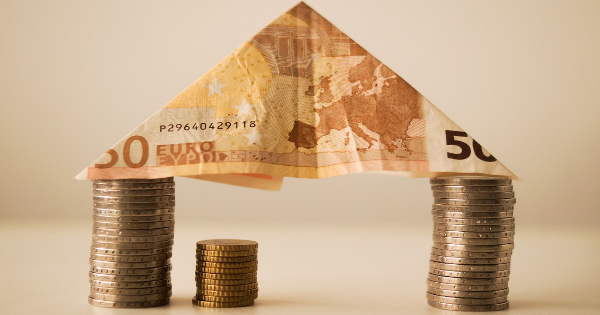
A reverse mortgage is a type of loan secured by the borrower’s property that is repaid after the borrower dies or moves out of the property.
Only after Ms. Marley’s death did members of her family realize they had to repay the reverse mortgage she had taken on her home.
Reverse mortgages are typically offered only to elderly homeowners. The lender pays the borrower either a lump sum or a regular annuity and the borrower retains ownership of the property until he or she dies or moves out. The accrued debt is then either repaid (typically from selling the property) or the ownership of the property is transferred to the lender. A reverse mortgage may be very attractive to a retiree as a means of either boosting his or her monthly income or of obtaining a substantial sum of money in a situation when other forms of loan usually are beyond his or her reach. Reverse mortgages are quite complex financial products, however, and may be presented in a misleading manner, which presents a risk to the borrowers or their heirs. Some countries have therefore adopted strict regulation of reverse mortgages. In Canada, for example, the final amount of a reverse mortgage may not exceed the market value of the property, and one has to have independent legal counselling in order to be eligible for such a loan.
Zpětná hypotéka je typ půjčky zajištěný majetkem vypůjčovatele, která se splatí poté, co vypůjčovatel zemře nebo se odstěhuje z nemovitosti.
Členové rodiny paní Marleyové si uvědomili až po její smrti, že musí zaplatit zpětnou hypotéku, kterou si vzala na svůj dům.
Zpětná, neboli reverzní, hypotéka, se typicky nabízí pouze starším vlastníkům nemovitostí. Půjčovatel vypůjčovateli vyplatí buď jednorázovou částku, nebo pravidelnou rentu, a nemovitost zůstane ve vlastnictví vypůjčovatele, dokud tento nezemře nebo se neodstěhuje. Nasčítaný dluh je následně buď splacen (typicky prodejem dané nemovitosti), nebo je vlastnictví nemovitosti převedeno na půjčovatele. Reverzní hypotéka může být pro důchodce velmi přitažlivá coby prostředek buď navýšení měsíčního příjmu, nebo získání vysoké částky peněz, v situaci, kde jsou ostatní formy půjček obvykle mimo jejich dosah. Zpětné hypotéky jsou však vcelku komplexní finanční produkty a mohou být prezentovány zavádějícím způsobem, což představuje riziko pro vypůjčitele nebo jejich dědice. Některé země proto zavedly striktní regulace zpětných hypoték. Například v Kanadě konečná výše zpětné hypotéky nesmí přesáhnout tržní hodnotu nemovitosti, a zájemci musí mít nezávislé právní poradenství, aby si mohli takovou půjčku zřídit.
English Editorial Services’ mission is to assist international businesses and organizations of all sizes to communicate clearly, correctly, and persuasively with their business partners and target audiences.
Simply subscribe to receive our Business Term of the Day at no charge to your inbox each business day, with explanation in English and Czech.



English Editorial Services’ mission is to assist international businesses and organizations of all sizes to communicate clearly, correctly, and persuasively with their business partners and target audiences.
Simply subscribe to receive our Business Term of the Day at no charge to your inbox each business day, with explanation in English and Czech.

